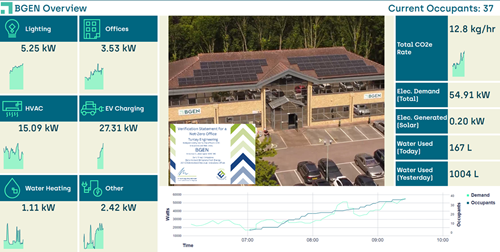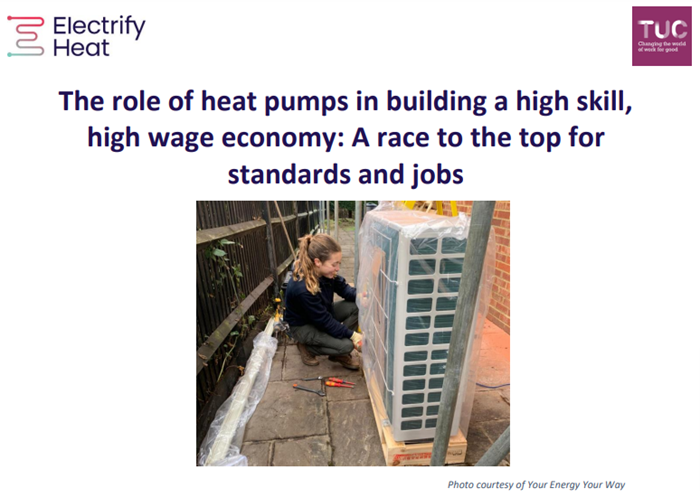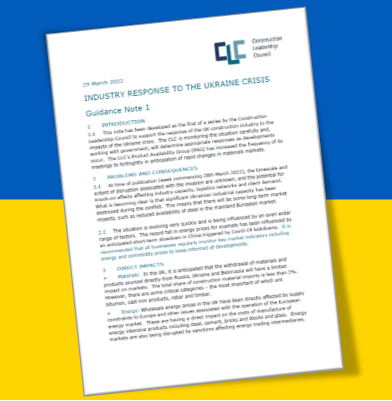Impact of labour shortages worsen for engineering services

ECAtoday

The latest engineering services industry survey, backed by leading trade bodies ECA, BESA, SELECT and SNIPEF, shows the growing impact rising labour shortages are having on business owners in the sector. This is having a clear knock-on effect on their business performance.
Almost half (42%) of respondents said labour shortages were the biggest concern for their businesses – up from a quarter (26%) in Q3 2022 and a third (32%) in Q4 2022.
Worries about cashflow and payment times persist – almost a quarter (23%) of respondents expect their turnover to decrease in Q2 2023, and 40% expect it to stagnate.
While many respondents’ businesses saw revenues rise over the winter, with 40% reporting an increase in turnover between Q4 2022 and Q1 2023, optimism may be offset by the fact that two thirds (59%) of SMEs said that between 1 and 5% of their turnover is currently being held in retentions – a notable increase from an already worrying 53% when last surveyed in January 2023.
ECA Director of Legal and Business Rob Driscoll said,
“The construction sector is feeling the impact of events that were set in motion following the Brexit vote, the pandemic, and the war in Ukraine. Right now, we are coming to the end of fixed price contracts which have seen firms squeezed by inflation rates of more than 23 percent on materials.
“Rising interest rates have caused a crash in the private housing sector, inflation has reduced spending in the public sector, and infrastructure costs are being reviewed . Increasingly, payments are being delayed to shore up finances when bank lending becomes unaffordable or unavailable.
“SMEs unfortunately sit at the sharp end of these factors. They lack the financial cushioning that allows bigger players to ride out these adverse business conditions. Despite this, the M&E sector remains resilient as RMI increases and construction drops.”
BESA Director of Legal and Commercial Debbie Petford said,
"The picture painted by our latest survey illustrates the direct link between cashflow and business optimism.
"Retentions and late payment are a serious drag on business growth which is exacerbated by the skills shortage. The fact that firms have a high number of vacancies shows there is plenty of pent-up demand for building services expertise, but firms are struggling to find suitably qualified staff and are too busy chasing payment to be able to fully invest in training, recruitment and staff retention.
"As usual, we find ourselves praising contractors' resilience in the face of these challenges, but we need more action from government to address the continuing curse of late payment. Freeing up cashflow would allow SMEs to dedicate more time and resource to things that matter to the wider economy like improving our built environment and delivering net zero”.
Over half (54%) of sector businesses reported vacancies in their organisations. When asked why they had trouble filling these vacancies, most businesses (54%) cited an insufficient supply of applicants, followed by a lack of appropriate skills (48%) and unaffordable pay expectations (43%).
About the survey
142 engineering services businesses responded to the Q1 2023 Building Engineering Business Survey (BEBS), which asked about their business performance in Q1 2023 and their expectations for Q2 2023 and beyond.
The survey was carried out in partnership with industry trade bodies BESA, SELECT, and SNIPEF, who together represent over 6,000 businesses of all sizes across the built environment sector, and is sponsored by Scolmore.
The survey ran from April 18 to May 2, 2023.

ECAtoday
Related Articles
ECA Member becomes founding partner of the Warrington Fund
Government warned to act fast on energy storage
Energy giant to convert coal plant into green energy hub
Data shows £74bn growth in green economy
2024 SPARKS Female Skills Competition launches
JIB Survey of Accidents at Work
NHS Scotland unveils first solar EV charging hub
SEA launches report to support move to energy efficiency
Significant steps towards better skills and competence revealed in CLC report
Latest Building Safety updates from the CLC
BT to repurpose broadband cabinets for EV charging
Electrical fault causes fire at Hampshire housing block
EIC offers free mental health training for apprentices
Recolight responds to WEEE consultation
Ruth Devine awarded MBE
National Grid ESO opens up to batteries
50,000 chargepoint boost for EV drivers
Boost in UK solar needs 500 more electricians per year
ECA Recharges Electrical Skills at the House of Commons
ECAtoday is out now!
Electrical sector feels skills shortage bite
Update on the Energy Savings Opportunity Scheme (ESOS)
ECA applauds Chancellor’s payment reforms for SMEs
ECA's Rob Driscoll discusses sector finances with CN
HSE highlights risks of workplace dust
ECA backs Bill to tackle Li-Ion battery fires
Environment Agency cuts waste red tape
ECA highlights “mixed signals” in King’s speech
National Grid accelerates renewables connections
ECA welcomes new Cabinet Office payment rules
Influential Business Survey opens for Q3
Revolutionary Welsh Housing Quality Standard introduced
Electrical skills timebomb in Eastern England
New laws to speed up EV charging
More support necessary for Greater London to fill green electrical apprentice shortfall
New ECS cards launched for Building Controls sector
Nuclear mini-reactors on the horizon
Role of local Government in Net Zero 'overlooked'
National Grid plans grid balancing measures for winter
Leading apprentice wins 2023 ECA Edmundson Award
ECA and FSA respond to Building Safety updates
ECA cautions against net zero targets becoming political football
ECA helps launch new industry skills authority
Joint letter calls for action before COP28
New Experienced Worker Assessment routes approved for FESS industry
Women in Security win accolades in London
Volvo to use car batteries in BESS
UK and Ireland sign 'landmark' green agreement
ECA launches country-wide #ProjectNetZero Roadshow
Leeds City Council opens all-electric, all-solar park-and-ride
Scotland to England power cable on the horizon
Government launches UK Business Climate Hub
Firm plans extensive EV training for technicians
JTL promotes newly revised electrical apprenticeship standard
Ovo to pay customers to use off-peak green energy
ECA Member recognised for world-first standard
‘Electrician Plus’ concept launched
New rules to improve fire safety of social housing
Share your views on product safety
Gov't plans to build new power lines twice as fast
Actuate UK calls for clarity on CE and UKCA mark
Welsh electrical firms especially worried about future skills
Building Safety Regulator raises concerns
ICEL Emergency Lighting Conference 2023 set for 14 September
Gov't pilots decarbonisation scheme
ECA warns Gov’t against ‘missing the boat’ following Net Zero report
UK EV gigafactories on the horizon
Research reveals urgent need for Net Zero skills
Influential quarterly Business Survey now open!
Gov't report busts 23 Net Zero myths
SkillELECTRIC 2023 UK Finalists Announced
New low-carbon engine manufacturer set for UK HQ
Put electricians at the heart of the clean energy transition, says ECA
Updated Carbon Reduction Code for the Built Environment
Electrical contractors celebrate honours at ECA Industry Awards 2023
ECA's Gary Parker speaks on LBC Radio
Paul Reeve comments on alternatives to onsite diesel
National Grid seeks contractors for £9.3bn of contracts
NHS to roll out green estates framework
BSI launches Young Professionals Programme
Construction firm warns of supply chain fraud
Government mulls commercial solar plan
Report: Net Zero could provide 700,000+ UK jobs
Nationwide inspection campaign to focus on dust
ECA Member BGEN appoints new CDO
Utilities warning over live cables
Public sector using Common Assessment Standard
Wiring Regulations update: corrigendum published
Industry welcomes new fire and security apprenticeship for Wales
Wiring Regulations corrigendum coming next week
Electrotechnical Apprenticeship sets gold standard for green skills
Three quarters of tradespeople upskilling to go green
ECA Edmundson Apprentice of the Year Award 2023 now open for entries
Influential quarterly Business Survey now open!
Shortlist revealed for 2023 ECA Industry Awards
UK and Netherlands to build world's biggest power line
ECHO-connected alarm handling celebrates 2nd anniversary
UK energy solutions funding competition opens
Product testing overhaul to follow Morrell review
Co2nstructZero Business Champion applications open!
Offsite manufacturing could slash emissions, says report
Skanska trials electric drilling rig
EDA survey shows sector moving towards digital
JTL welcomes listing of apprenticeships on UCAS
Government publishes heat pump roadmap
Funding announced for 53 new electricity and gas network projects
Revised PAS2080 Standard and Guidance launched
BEAMA responds to new energy policies
Powering Up Britain: Gov’t listens to some industry concerns, but continues to overlook skills
ECA Commercial Associate ABB invests in DC microgrids
Last chance to enter the ECA Awards!
Balfour Beatty launches pop-up EV chargers
Electrical Distributors’ Association Annual Awards
£1.8 billion for energy retrofit
New performance framework for construction products
Cabinet Office note to boost public sector CAS specification
Spring Budget: Electrical sector welcomes energy bills U-turn, but warns of skills crisis
Government publishes searchable Building Regulations and Approved Documents
Budget to boost carbon capture and nuclear
Long queues for East of England EV drivers waiting for high-speed public charge points
HS2 seeks ECA Member views
Business Survey: payment and recruitment challenges loom for engineering services in 2023
Welsh Government highlights ECA in Green Skills Action Plan
ECS Annual Review Highlights Raising Standards
SkillELECTRIC 2023 now open for entries
Smart meters in half of British homes
Fast-track planning to be tested on projects
NHS launches £500m framework
1.29GW of battery storage coming to the UK
New Ministry champions holistic approach to decarbonisation
ECA Member BGEN transforms its headquarters into a net zero building
East Midlands EV drivers lose out to Londoners says new evidence
Over £110 million to unlock zero emission flights
NG Bailey opens apprenticeship scheme
Government urged to develop energy storage strategy
UK energy entrepreneurs to receive cash boost
M&E subcontractors sought for £545m of work
Onsite "plug-and-go" 5G networks developed
NAW 2023: Electrical apprenticeships offer best career opportunities
ECA welcomes creation of new Energy & Net Zero Department
Join a £135 million public sector framework
The UK added 800MWh of energy storage in 2022
Construct Zero Business Champions round 13 opens
ECA Commercial Associate delivers millionth EV charger
Industry Accreditation cards to expire in 2024
New Fire Safety Regulations come into effect
Jeremy Vine set for 2023 ECA Industry Awards
ECHO celebrates milestone
ECA Commercial Associate scoops sustainability prize
National Grid seeks contractors for green boost
JIB Apprentice Exchange winner announced
Signify upgrades University of Cambridge's outdoor lighting
MPs call for home insulation drive
Smart meters up by a third in 2022
CLC Construct Zero highlights 2022 success
Renewables generate 40 percent of UK electricity
Recognition for industry colleagues
ECA’s voice heard on SME payment review
UKCA transition extended to 2025
Winter energy crisis: ECA’s advice for managing power cuts
NEC to host free webinar on retentions
2023 ECA Industry Awards now open for entries!
WorldSkills success for young Somerset electrician
CLC Launches Young Ambassadors Recruitment Competition
Survey: Sector optimism tempered by staff shortages
Survey: what are your barriers to low-carbon work?
Global firms back battery re-use proposals
Waitrose embraces heat pumps
ECA welcomes Hunt’s energy resilience message, but says electricity taxes counterproductive
New Construction Minister announced
New private sector Construction Playbook to boost productivity
UKCA deadline delayed
COP27: “No net zero without skilled workforce” says ECA
COP27: ECA joins voices calling for joined-up policy approach
Cost of living crisis: shoppers turn to second-hand appliances
COP27 begins
Have your say: EV Charging Standards
Appeal for employers to assist with validating T levels
Work continues to update Electrical Apprenticeship in England
NHS Wales seeks contractors for £7m of work
CLC urges CE mark U-turn
CLC support for Energy Bill Relief Scheme
This December: Join the NHS hospital building programme
Shell shuts key hydrogen vehicle sites
SSE launches UK wide EV charging network
CIBSE recognises up-and-coming industry talent
ECA Members: Answer our latest influential sector survey!
ECA reacts to Rishi Sunak’s appointment as PM
ECA ‘seriously concerned’ about political turmoil in Westminster
New festival of electrification
Electricity market reform must promote clean energy, says ECA
WHO issues mental health at work guidelines
National T-Levels Week : Toolkit for Employers
Report: Hydrogen not a “silver bullet” for heating homes
CLC’s latest product availability update
Balfour Beatty boost offshore wind prospects
New Construction minister announced
Kier Highways to offer apprenticeships to prisoners
ECA to host free Amendment 2 webinar on top 10 changes to the Wiring Regulations
World EV Day 2022: New research strengthens case against cutting corners on EV charging safety
How can ECA support you better?
Government launches Net Zero review
Leading apprentice wins 2022 ECA Edmundson Award
Construction Leadership Council announces its new strategy
ECA launches Leading the Charge series
ECA responds to Energy Bill Relief Scheme
Two thirds of Brits have smart home plans
Energy sector demands ‘radical action’ from COP27
ECA mourns passing of Her Majesty Queen Elizabeth II
ECA takes key role on UK Electricity Products Supply Chain Council
ABB smart building scheme boosts Manchester Metropolitan University
Act now to avoid industry crisis, ECA warns Liz Truss
Floating device could provide ‘cheapest’ renewable energy
World’s largest offshore wind farm begins operation
SEA publishes tips to access energy efficiency schemes
Solar panel sales through the roof
Balfour Beatty seeks contractor for £30m of MEP work
Electrical industry reacts to Ofgem price cap rise
UK’s first fusion plant calls for tenders
£20m public EV chargepoint boost
Electricians urged to join fight against tool theft
Common Assessment Standard uptake grows
Cutting-edge vanadium flow battery brought online in Scotland
Scottish factory to build Sahara-Devon cable
ECA Member supports first T Level cohort
ECA’s solution to rising bills could save 70% of UK households £100 a year
Cheshire energy tech factory to hit net zero 8 years early
CIBSE Climate Action Plan highlights impact of building services on net zero
New report highlights net zero skills shortage
First Smart Factory for Formula One
Survey seeks insight into roof ladder use
NE businesses incentivised to go low-carbon
New carbon-negative microgrid in Manchester
SLL Young Lighter 2022 open for entries
BSI launches new competence standards
Scotland to ban fossil fuel boilers
New green heat grants available
ECA Edmundson Apprentice of the Year Award finalists announced
Join the biggest hospital building programme in a generation
More than a million businesses now eligible for Help to Grow
ECS gold card milestone
ESF warns against TikTok heatwave 'hack'
ECA asks: why are electricity prices four times more expensive than gas?
Infographic shows impact of energy transition
HSE guidance for working in heatwaves
Sign up now: HSE Inspectors’ Guide to Electrical Safety
UK electricity market reform to ease pressures
New Construction Minister announced
BPF calls for green tech incentives
CICV and Actuate UK members launch Green Homes Festival
Offshore wind milestone: 11GW of capacity underway
50GW offshore wind target needs £54bn, says National Grid
New Electricity Networks Commissioner appointed
Oxford to become global battery hub
ECHO wins at British Security Awards
Signify calls for accelerated transition to LEDs
Become a Construct Zero Champion!
ECA Members named top apprentice employers
Report: heat pumps critical for high skills, high wage economy
SEA points out gaps in Gov’t Net Zero policy
New CLC statement on product availability
Building Safety Act comes into force
CompEx partners with Trainor to shape the future of e-learning
Wearable device monitors onsite dust exposure
Mark Reynolds confirmed as new CLC Co-Chair
New measure to make UKCA marking easier
Your chance to comment: Code of Practice for Solar PV installations
Respond to the latest People Survey
Offshore jobs to grow to 100,000
HSE shares new guidance on slips and trips
Boosted funding to expand charger network
UK Infrastructure Bank takes shape
CLC survey: PII premiums “disproportionally” affecting SMEs
Firms hunt for the right people to aid bounce back
The Future of Construction – interview with ECA CEO Steve Bratt
ECA responds to government Inquiry into fossil fuels and energy security
Government invests over £31mn to cut carbon
CLC: inflation overtakes product availability concerns
Watch now: ECA Learning Zone with Ensign
Simpler procurement rules on the horizon for SMEs
£200m battery centre planned for West Mids
MPs call for fewer demolitions to cut carbon
Construction giant ISG joins CAS
CIBSE and BEIS new heat pump guidance
Northumbria Police connects to ECHO
Contractors wanted for Midland Mainline electrification
ECA urges industry to prepare for heat pumps demand
Help to Grow your SME with BEIS
5MW solar farm set for Buckinghamshire
BEAMA launches specialist tool for heating installers
ESF petition to stop sale of dangerous goods
Working Group 2 Competence Report published
Industry leader Steve Murray becomes ECA President
EIC promotes Mental health First Aider Training
Guidance for drivers to cut fuel costs
First diesel-free construction site for HS2
Survey shows two thirds of motorists want to switch to EV
ECA welcomes Queen’s Speech promises with high expectations for skills, safety and Net Zero
Council fined £50,000 for employee HAVS
Prestigious Apprentice Awards return!
Business Survey opens!
BEAMA publishes new AFDD FAQ sheet
ECA calls for stronger competency requirements in Building Safety Act
Local Elections 2022: ECA calls for better local EV charge point policy
Heat pumps now cheaper to run than gas boilers
ABB Formula E unveils next-gen electric racer
Building Safety Bill receives Royal Assent
Green skills made top priority in new law
Bedford landlord fined for fire safety breaches
NHP Supplier Guide published
Webinar: How to avoid ‘Smash and Grab Adjudication’ with Rob Driscoll and Payapps
Zero emission flights on the horizon
CLC warns of product prices rise between 10-20%
IfATE launches apprentice panel competition
CSCS Smart Check app launched
Catch up with the EIC mental health podcast
Join this week's CPD webinar, with Detector Testers!
Contractor and subcontractor fined after cable strike
Driving for Better Business launches fleet risk podcast
ECAtoday Spring 2022 is out now!
ECA's #Project18 off to a flying start!
ECA responds to Energy Security Strategy
More are now eligible for Level 3 funding
IPCC publishes ‘final warning’ climate report
Changes to PPE Regulations start today
Real-time onsite silica dust detector launched
New app to simplify skills card checks
Open ECX launch new EDI invoicing platform
Common Assessment Standard Updated
Contracts push back on 'greenwash'
ECA launches UK-wide Amendment 2 Roadshow
CLC publishes Guidance Note for Ukraine crisis
HS2 signs up to support CO2nstruct Zero
ECA welcomes new EV strategy, but warns of potential dangers from low standards
ECA pays tribute to Paul McNaughton
Green light for Domestic Electrician Apprenticeship
Gov’t answers ECA’s call for 0% VAT on renewables
ECA joins calls for unprecedented action on energy prices in Spring Budget
Join the ECA Learning Zone with Revizto!
Gov’t extends plug-in van and truck grants
New hard hats to include MIPS technology
BEAMA launches Net Zero systems report
First new-style pylons installed in UK
Actuate UK and Energy Systems Catapult boost green skills
ECA champions green careers
Sylvania chooses EDATA
IFSEC Global publishes Annual Fire Safety Report
ECA asks Europe to focus on Green Deal
ECS highlights crucial upskilling role
SkillELECTRIC 2022 open for entries
New Solar Energy UK report on attitudes to solar
CO2nstruct Zero continues to grow
HSE issues safety notice on UPS
What’s new with ElectricalOM? Sign up and find out!
UK’s largest gas-free homes scheme breaks ground
Are you up to date with ECAtoday?
ECAtoday is the official online magazine of ECA and reaches thousands of people within the electrotechnical and engineering services industry.
Copyright © 2024 Electrical Contractors Association Ltd

































.png?width=1000&height=606&ext=.png)


.jpg?width=500&height=335&ext=.jpg)

.jpg?width=750&height=485&ext=.jpg)


































































































































































.jpg?width=1024&height=683&ext=.jpg)





















.jpg?width=500&height=402&ext=.jpg)














.jpg?width=3508&height=2481&ext=.jpg)
.jpg?width=500&height=535&ext=.jpg)



.jpg?width=500&height=350&ext=.jpg)

